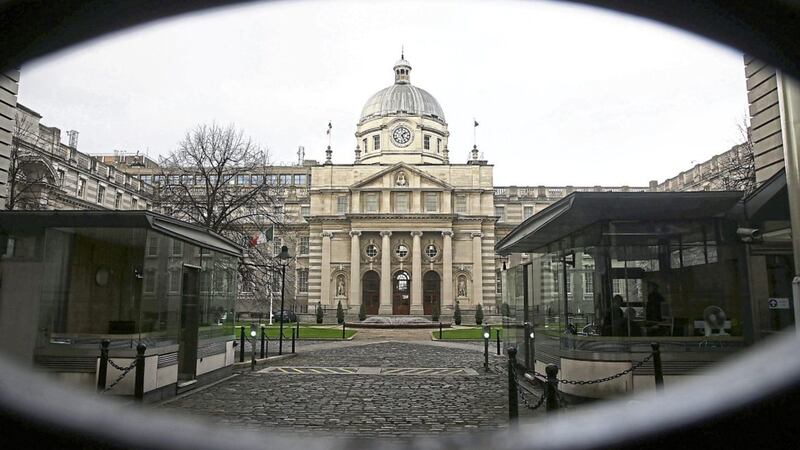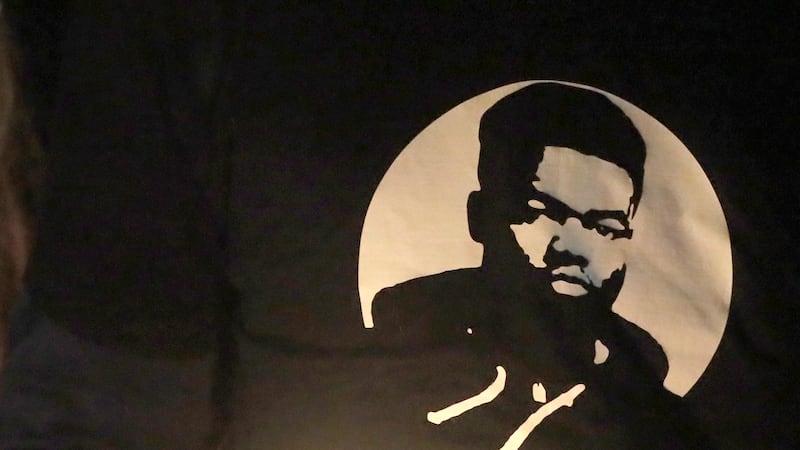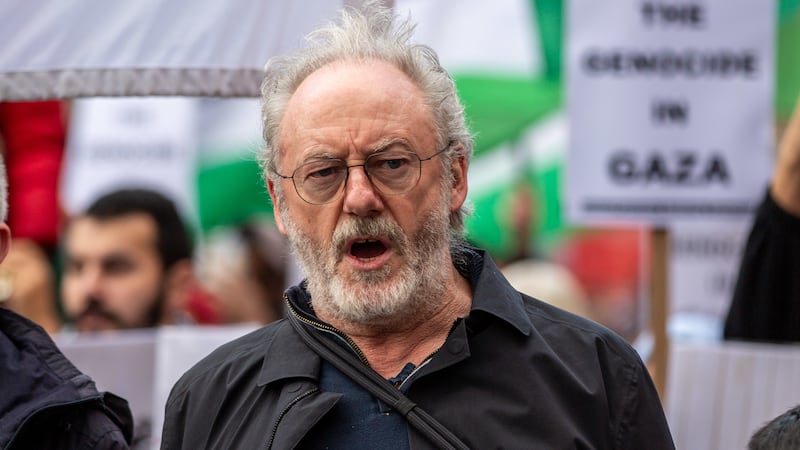The Republic of Ireland's minority government looks set to narrowly avoid collapse and the prospect of a snap election in the run up to Christmas after the tánaiste quit over her knowledge of the treatment of a whistleblower.
How did it come to this?
The last 18 months have seen a flimsy arrangement where the arch-rivals of southern Irish politics - Fine Gael and Fianna Fail - worked together in the hope of ensuring a stable three-year government. It was known as a confidence and supply deal whereby Fianna Fail agreed not to back motions of no confidence in the minority Fine Gael government and in return there were compromises on legislation. Ultimately, the deal came to a head when Fianna Fail demanded Frances Fitzgerald's resignation after it emerged she was aware of an aggressive legal strategy being employed against a whistleblowing Garda by lawyers for the then Garda commissioner.
And what does she say?
Initially she refused to budge. She claimed she could not have intervened in an approach being taken by another organ of the state because of the principle of separation of powers. She also had the support of Taoiseach Leo Varadkar.
But then?
Common sense prevailed. She was in a lose-lose situation. It was either brazen it out and face down the party keeping the minority government in power or go. Essentially she would have lost her job one way or another as the government would have fallen in the face of the no confidence motion and the Taoiseach would have faced the unedifying prospect of being one of the shortest serving leaders in Irish history. Never mind that personal blot, but he would have been considered a caretaker head of government during next month's crucial Brexit summit where the question of the Irish border will be front and centre.
So, what was the case against Frances Fitzgerald?
A series of emails from May and July 2015 show she was told about the "aggressive" approach being taken by Garda lawyers against Sergeant Maurice McCabe at the judge-led inquiry into his allegations of bad policing. The O'Higgins Commission, as it was known, was held behind closed doors. Mrs Fitzgerald previously claimed she did not know about the strategy until 2016 when transcripts of the hearings were leaked. The emails contradict that. And they suggest she took no action when she was informed, only that she had "noted" the information.
But what could she have done?
She insists that she did as advised and that it would have been wrong to interfere. Her critics would say she should have voiced her dissatisfaction with the approach being taken by Garda lawyers. She could also have notified the then Taoiseach of her thoughts on the issue. She could have asked the Attorney General for formal advice on whether she could have intervened. There is also the unanswered question as to why these emails were not already handed over to the public judge-led inquiry being held into the treatment of Sergeant McCabe.
Ah, the whistleblower. Who is he and should we believe him?
Maurice McCabe. And yes. His disclosures date back to 2006 and the fallout from his revelations have led to repeated political crises. In the time that his allegations have been swirling there have resignations or retirements of a swathe of big players in the justice arena including two Garda commissioners and a justice minister. Mr McCabe also faced extraordinary false allegations in a smear campaign spread among some garda, some sections of the media and political circles which related to an unfounded sex abuse complaint. That is what the public inquiry is examining.
But parking that for a minute, why would Taoiseach Leo Varadkar not want to go to the polls, he seems to be a popular leader?
If an election is called before Christmas it will be right in the teeth of what is, from an Irish point of view, the most delicate and divisive stage of the Brexit negotiations. And there the taoiseach holds an ace card - a veto on the talks which he could play at a Brussels summit in mid-December. But it remains to be seen how a caretaker leader would be viewed among the political chiefs of European politics. It is bound to prompt deep criticism from the hardline Brexiteer camp in the UK. Notwithstanding that crisis, would you want your door knocked by canvassers just when you're trying to get into the festive spirit? That certainly seemed to be the message many backbenchers were hit with as they canvassed opinion last weekend.
Surely Brexit is not the only big ticket issue Ireland is facing?
Yes, you are right there. There's also the small matter of a referendum on the future of Ireland's strict limitations on abortion. It is provisionally scheduled for the middle of next year. That could be delayed if a parliamentary committee cannot finish its work on advising government before Christmas. And there is also the not-insignificant matter of legislation waiting to be passed on the budget to allow for old age pension. Good luck winning the grey vote with that one.
And what's the future for the Taoiseach? Has he been damaged?
Questions over his leadership skills may swirl in the coming weeks but there's no doubt that the wider impact will be on relations between his Fine Gael party and Fianna Fail. Many experienced political heads see it as only a matter of time before the Government falls and a new election is ordered.


